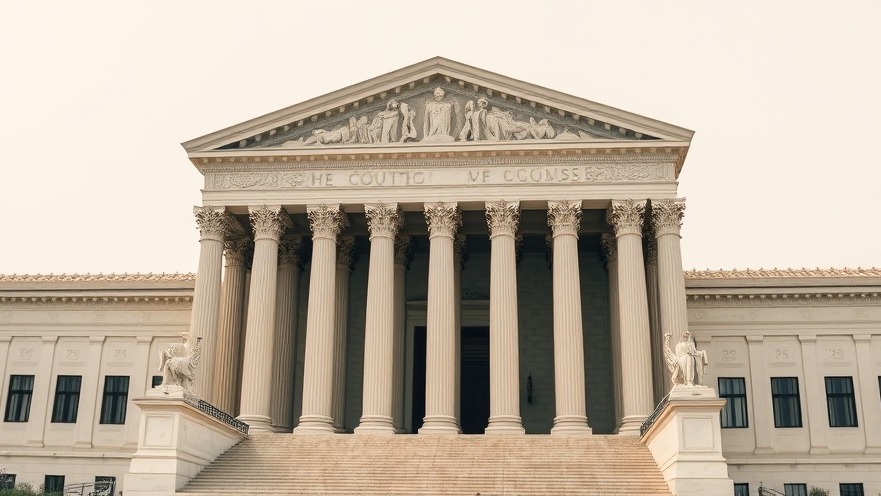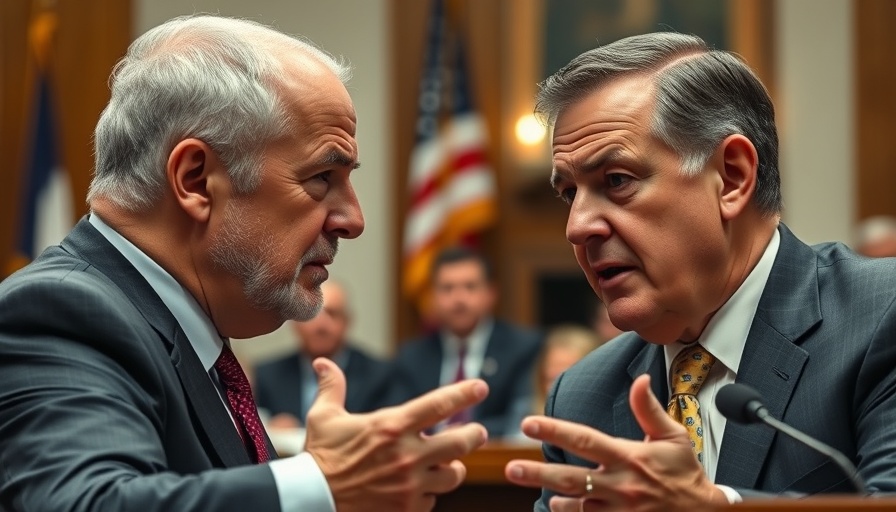
The Supreme Court Delivers a Game-Changer for Immigration Rights
In a landmark decision by the U.S. Supreme Court, a unanimous 9-0 ruling has established a crucial precedent in immigration law that emphasizes justice and humane treatment. This ruling mandates the return of Abrego Garcia—who was wrongfully deported to a notorious prison in El Salvador, known for its harsh conditions—back to the U.S. Garcia's case sheds light on the importance of due process and the need for thoughtful application of immigration policies.
Restoring Faith in the Justice System
The Supreme Court's decision comes as a refreshing reminder that checks and balances are not just theoretical concepts but vital components of our democracy. The ruling reinforces the principle that all individuals deserve fair treatment under the law, a commitment to justice, and the upholding of constitutional rights. Immigration attorneys, in particular, should find encouragement in this outcome, as it demonstrates the system's capacity to correct injustices.
Contextualizing Garcia's Journey
Garcia was swept up in the turmoil of an unjust immigration system that often prioritizes expediency over justice. The implications of this case extend beyond Garcia; it underscores the importance of having a robust legal framework to protect individuals from wrongful deportation. Garcia's unfair experience shines a light on the struggles countless immigrants face and highlights the critical role legal advocacy plays in the immigration process.
Future Implications for Immigration Policy
This ruling could have far-reaching effects on future deportation cases. As immigration attorneys navigate the complexities of the law, the Supreme Court's stance reinforces the need for rigorous legal standards in all deportation proceedings. It could potentially lead to a reevaluation of policies that compromise due process, encouraging lawmakers to consider reforms that ensure humane treatment for all individuals.
Why This Decision Matters to Community Activists
Activists working within communities impacted by immigration law will find this ruling to be a significant victory. It not only restores hope for those advocating for immigrant rights but also signals to policymakers that the public demands accountability within the immigration system. Grassroots initiatives will likely flourish in response to this renewed faith in the legal system, encouraging more individuals to stand up for their rights.
The Role of Advocacy in Immigration Cases
The unanimous decision by the Supreme Court serves as both a triumph and a call to action for immigrant rights advocates. The necessity of continued advocacy and public awareness surrounding immigration issues cannot be overstated. As momentum builds following Garcia’s case, immigration attorneys can play a pivotal role by mobilizing communities, educating them about their rights, and offering support to those facing deportation.
In reflecting on the ruling, it is clear that the importance of legal representation in immigration cases cannot be overlooked. Ensuring that individuals are afforded their rights and that injustices are addressed benefits society as a whole. As we applaud this decision, let's remain vigilant in our efforts to advocate for an immigration system marked by fairness, dignity, and respect.
 Add Row
Add Row  Add
Add 

 Add Row
Add Row  Add Element
Add Element 




Write A Comment